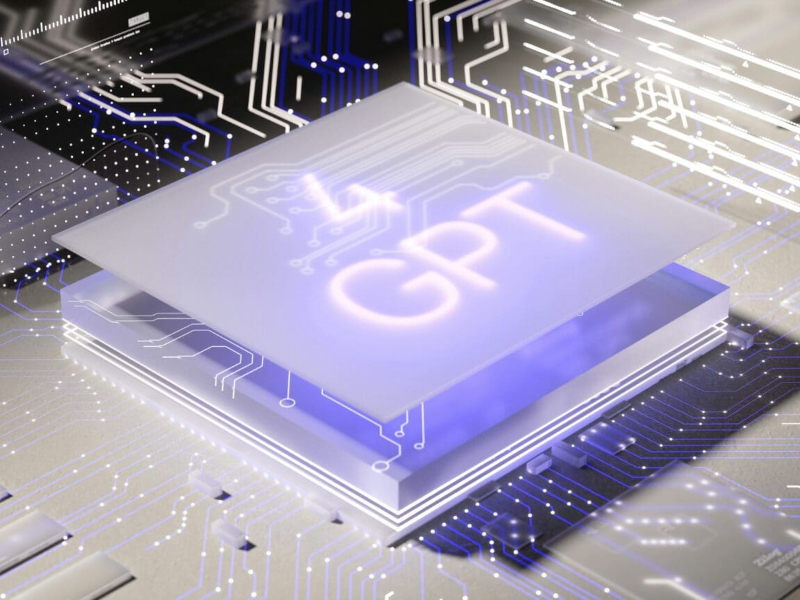No longer a distant futuristic concept, Artificial Intelligence (AI) is a dynamic force reshaping the global job market, creating new opportunities, and fundamentally altering the nature of work. As AI technology advances, it revolutionizes industries, transforms workflows, and introduces unprecedented efficiencies. However, this transformation also raises significant debates about job displacement and the necessity of reskilling. More importantly, it underscores the critical role of human-AI collaboration, where human skills and AI capabilities complement each other.
AI and Job Market Reshaping
The Rise of AI-Driven Industries
AI’s impact on the job market is profound, with industries leveraging its capabilities to enhance productivity and innovation. Healthcare, finance, manufacturing, and retail sectors are at the forefront of this AI revolution.
In healthcare, AI improves diagnostic accuracy, personalizes treatment plans, and automates administrative tasks, allowing healthcare professionals to focus more on patient care. For example, AI algorithms can analyze medical images faster and more accurately than human radiologists, leading to earlier and more accurate diagnoses. Financial institutions use AI to detect fraudulent activities, predict market trends, and provide personalized banking services. In manufacturing, AI-driven automation enhances production efficiency and quality control, while retail leverages AI for inventory management, customer service through chatbots, and personalized shopping experiences. Retail giants like Amazon use AI to predict consumer behavior and manage their vast inventory, ensuring that products are available when and where they are needed.
Emergence of New Job Roles
The advent of AI is not just about replacing existing jobs but also about creating new ones. As AI becomes more integrated into various industries, there is a growing demand for roles such as AI specialists, data scientists, machine learning engineers, and AI ethics consultants. These roles require a unique blend of technical expertise, analytical skills, and ethical considerations. Moreover, AI is also creating new job roles in industries not traditionally associated with technology, such as healthcare, retail, and agriculture, thereby broadening the impact of AI on the job market.
Additionally, the rise of AI-driven platforms has spurred the gig economy, creating opportunities for freelancers and contract workers who can provide specialized skills on a project basis. This shift towards a more flexible workforce model caters to the evolving needs of both employers and employees. Companies like Uber and Upwork have thrived in this environment, allowing workers to choose when and how they work while providing employers access to a diverse talent pool. AI plays a crucial role in this gig economy, from matching freelancers with projects to automating payment processes, transforming the nature of work in these platforms.
Opportunities Created by AI
Enhancing Productivity and Efficiency
AI’s ability to process vast amounts of data at incredible speeds is revolutionizing business operations. By automating routine and repetitive tasks, AI frees human workers to focus on more complex, creative, and strategic activities. This shift enhances productivity and increases job satisfaction as employees engage in more meaningful work.
For example, in the legal industry, AI tools can review and analyze legal documents much faster than human lawyers, allowing them to focus on higher-value tasks such as client consultations and courtroom appearances. Similarly, in human resources, AI can automate the initial stages of recruitment by scanning resumes and identifying suitable candidates, thus streamlining the hiring process.
Driving Innovation
AI catalyzes innovation, enabling organizations to develop new products, services, and business models. For instance, AI-driven predictive analytics allow companies to anticipate customer needs and market trends, leading to more effective decision-making and competitive advantage. Moreover, AI-powered research and development tools accelerate innovation, bringing new solutions to market faster.
In the automotive industry, AI is driving the development of autonomous vehicles, which promise to transform transportation by improving safety, reducing traffic congestion, and lowering emissions. Companies like Tesla and Waymo are at the forefront of this innovation, using AI to create self-driving cars that learn and improve over time.
Personalizing Customer Experiences
One of the most significant benefits of AI is its ability to deliver highly personalized experiences. AI can tailor recommendations, customize marketing campaigns, and provide personalized customer service by analyzing customer data and behavior. This level of personalization enhances customer satisfaction and loyalty, driving business growth.
Streaming services like Netflix and Spotify use AI algorithms to recommend content based on individual preferences and viewing or listening habits. This personalization keeps users engaged and coming back for more. In e-commerce, AI chatbots provide instant customer support, answer queries, and resolve real-time issues, improving the overall customer experience.
Reskilling and Upskilling
As AI transforms the job market, there is and needs to be, a growing emphasis on reskilling and upskilling the workforce to meet new demands. Governments, educational institutions, and businesses are investing in training programs to equip workers with the skills to thrive in an AI-driven economy. These programs focus on technical skills such as coding and data analysis and soft skills like critical thinking, creativity, and emotional intelligence.
Massive Open Online Courses (MOOCs) offered by platforms like Coursera and edX provide accessible and affordable training in AI and related fields. Companies like IBM and Google also offer certification programs to help individuals develop the skills needed for AI-related jobs. These initiatives ensure the workforce remains adaptable and can leverage new technologies.
Challenges and Debates
The Elephant in the Room – Job Displacement
The potential for AI to displace jobs is a significant concern for many in today’s job market. While AI creates new opportunities, it also automates many tasks previously performed by humans, leading to job losses in specific sectors. For example, automation in manufacturing and logistics has led to a decline in demand for manual labor. At the same time, AI-powered software associated with supply chains can perform administrative tasks more efficiently than human workers.
The challenge lies in managing this transition and ensuring that workers displaced by AI are provided with opportunities to reskill and transition into new roles. Governments and businesses must work together to create policies and programs that support displaced workers and foster a more inclusive job market. This might include offering unemployment benefits tied to retraining programs or incentivizing companies to hire and train workers in new AI-driven roles.
Skills Gap
The growing skills gap must be addressed as AI reshapes the job market. Many in the labor force lack the technical skills required for new AI-driven roles, creating employment barriers. Bridging this gap requires a concerted effort to revamp education and training systems, making them more responsive to the needs of the AI economy.
Educational institutions must integrate AI and data science into their curricula, ensuring students have the knowledge and skills required for the future job market. Vocational training programs should also be updated to include AI-related skills, providing a pathway for workers in traditional industries to transition into new roles.
Ethical and Social Implications
AI’s rise also raises important ethical and social questions. Data privacy, algorithmic bias, and AI’s ethical use in decision-making processes must be addressed to ensure that AI technologies are developed and deployed responsibly. Moreover, there is a need to establish regulations and frameworks that govern the use of AI, protecting individuals and society from potential harm.
For example, while useful in security applications, facial recognition technology has raised concerns about privacy and potential misuse by authoritarian regimes. Algorithmic bias, where AI systems inadvertently perpetuate existing biases in data, can lead to unfair outcomes in areas like hiring and law enforcement. Addressing these issues requires a multidisciplinary approach involving ethicists, policymakers, and technologists.
Human-AI Collaboration
The future of work is not about humans versus AI but rather about humans working alongside AI. Human-AI collaboration leverages both strengths, combining AI’s analytical power and efficiency with human creativity, empathy, and judgment. This collaboration can lead to more effective problem-solving, innovative solutions, and enhanced productivity.
To foster human-AI collaboration, organizations must create environments that support this synergy. This includes designing workflows integrating AI tools, providing training to help workers understand and utilize AI, and promoting a culture that values and encourages collaboration between humans and machines.
AI can assist artists and designers in the creative industries by generating new ideas or automating repetitive aspects of the creative process. AI can analyze patient data and suggest treatment options in healthcare, but human doctors make the final decisions, considering the nuances and ethical implications.
Strategies for Navigating the AI-Driven Workforce
Embracing Lifelong Learning
We are evolving to an AI-driven job market, and lifelong learning has become essential. Workers must continuously update their skills to stay relevant and competitive. This requires a shift in mindset, where learning is viewed as an ongoing process rather than a one-time event. Employers can support this by offering continuous learning opportunities and encouraging a culture of curiosity and innovation.
Life-long learning is an investment in the future. Online learning platforms, professional development courses, and in-house training programs can facilitate lifelong learning. Encouraging employees to participate in these programs and providing them with the resources can help them stay ahead of technological changes and remain valuable assets to their organizations.
Fostering Adaptability and Resilience
As AI evolves, adaptability and resilience become crucial traits for workers. The ability to quickly adapt to new technologies and changing job requirements is critical to thriving in an AI-driven economy. Building resilience involves developing a growth mindset, embracing change, and viewing challenges as opportunities for growth.
Organizations can support adaptability by creating a flexible work environment that encourages experimentation and innovation. Offering employees opportunities to work on diverse projects and exposing them to different aspects of the business can help them develop the skills and mindset needed to navigate the AI-driven landscape.
Promoting Inclusivity and Diversity
Inclusivity and diversity are critical to the success of AI in the workplace. Diverse teams bring different perspectives and ideas, leading to more innovative and effective solutions. Organizations must prioritize diversity in their hiring practices and create inclusive environments where all employees feel valued and supported.
This involves hiring a diverse workforce and fostering an inclusive culture where different viewpoints are respected, and collaboration is encouraged. Diversity training programs and policies that promote equality can help create a more inclusive workplace where AI can thrive.
Ethical AI Development and Deployment
Ensuring that AI technologies are developed and deployed ethically is paramount. This involves addressing issues such as data privacy, algorithmic bias, and the potential for AI to perpetuate existing inequalities. Organizations must implement robust ethical guidelines and frameworks to govern the use of AI and ensure that it is used responsibly and for the benefit of all.
Ethical AI development also requires transparency and accountability. Companies should be open about how their AI systems work and the data they use, allowing for external audits and assessments. This transparency can help build trust and ensure that AI is used in fair and just ways.
Collaboration Between Stakeholders
Navigating the AI-driven workforce requires collaboration between various stakeholders, including governments, businesses, educational institutions, and workers. Governments can play a role by creating policies and regulations that support AI adoption while protecting workers and society. Academic institutions must update their curricula to prepare students for the AI economy, while businesses can invest in training and development programs to reskill their workforce.
Public-private partnerships can be particularly effective in addressing the challenges posed by AI. By working together, different stakeholders can pool their resources and expertise to develop comprehensive solutions that ensure a smooth transition to an AI-driven economy.
The Future of Work
The future of work, shaped by AI, presents immense opportunities and significant challenges. It’s a given: AI is transforming the job market, creating new roles, enhancing productivity, and driving innovation. However, it also raises concerns about job displacement, the skills gap, and ethical implications. To navigate this evolving landscape, embracing lifelong learning, fostering adaptability and resilience, promoting inclusivity and diversity, and ensuring AI’s moral development and deployment are essential.
Human-AI collaboration is the key to unlocking the full potential of AI in the workplace. By combining the strengths of both humans and AI, we can create a more efficient, innovative, and inclusive job market. As we progress, collaboration between stakeholders will be crucial in building a future where AI enhances human capabilities and contributes to a more prosperous and equitable society.
About Gryphon Citadel
Gryphon Citadel is a management consulting firm located in Philadelphia, PA. Our team provides valuable advice to clients across various industries. We help businesses adapt and thrive by delivering innovation and tangible results. Our services include assisting clients in developing and implementing business strategies, digital and organizational transformations, performance improvement, supply chain and manufacturing operations, workforce development, planning and control, and information technology.
At Gryphon Citadel, we understand that every client has unique needs. We tailor our approach and services to help them unlock their full potential and achieve their business objectives in the rapidly evolving market. We are committed to making a positive impact not only on our clients but also on our people and the broader community.
Our team collaborates closely with clients to develop and execute strategies that yield tangible results, ensuring they thrive amid complex business challenges. If you’re looking for a consulting partner to guide you through your business hurdles and drive success, Gryphon Citadel is here to support you.





